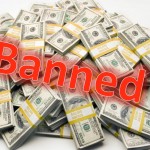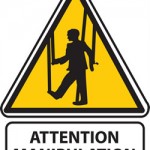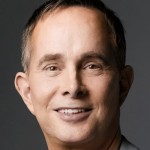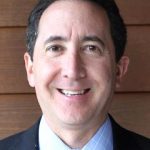
Central bankers, Bitcoin, and why he’s buying physical gold every month
Hard Assets Alliance, Released on 8/15/17
“It’s good to have a diversified asset outside of the banking system.”
 08/23/2017 - Dr. Marc Faber: “Compared To Assets, Money Has Lost A Tremendous Amount Of Purchasing Power.”
08/23/2017 - Dr. Marc Faber: “Compared To Assets, Money Has Lost A Tremendous Amount Of Purchasing Power.”
Central bankers, Bitcoin, and why he’s buying physical gold every month
Hard Assets Alliance, Released on 8/15/17
“It’s good to have a diversified asset outside of the banking system.”
 08/18/2017 - Nomi Prins Speech On Global Monetary Policies: Central Banks In The U.S., Europe & Japan Hold Assets Equivalent To 17% Of Global GDP
08/18/2017 - Nomi Prins Speech On Global Monetary Policies: Central Banks In The U.S., Europe & Japan Hold Assets Equivalent To 17% Of Global GDP
“Central banks around the world are now pursuing a coordinated zero percent money policy and increasing their assets. The big three central banks in the United States, Europe and Japan now hold assets equivalent to about 17% of global GDP.”
 08/10/2017 - McAlvany Podcast: Is A Cashless Society At The Doorstep? Look To Asia For The Answer
08/10/2017 - McAlvany Podcast: Is A Cashless Society At The Doorstep? Look To Asia For The Answer
-Is a cashless society at the doorstep? – Look to Asia for the answer
-A dynamic approach to compounding the amount of ounces you own
-Dow at all-time highs…Echo of 1987, 2000 and 2008
 08/10/2017 - Dr. Marc Faber: Central Bank Interventions In The Financial Markets Have Distorted Prices
08/10/2017 - Dr. Marc Faber: Central Bank Interventions In The Financial Markets Have Distorted Prices
Octavian Report: “Faber has a reputation as a bear — an incorrect reputation. He has often been loudly, and correctly, bullish (he was one of the most vocal proponents of the massive buying opportunity that stretched through the spring of 2009). In this week’s episode of the Rostrum, he tackles a subject on the mind of every serious market observer. Given that we seem to have entered a truly explosive phase of an economic expansion ongoing since things bottomed out in 2009, is there still real value to be found? Faber argues there is — it might be harder to spot and it might not be as deep as it was in the aftermath of the financial crisis, but sharp-eyed investors will find intriguing opportunities in Asian markets, Eastern European markets, precious metals, and real estate. He also gives his profile of geopolitical risks — U.S.-Russia tension is a big one, and one he does not see being resolved anytime soon — with an interesting detour into his views on cryptocurrencies. Faber also outlines his thinking on the ever-renewed central bank follies that are, we think, contributing to the tear equities have been on, and gives his thoughts on one of the big questions facing investors at the moment: are we entering the age of passive management or will active management make a comeback?”
 08/04/2017 - Alan Greenspan: Interest Rates On Government Bonds At Historic Lows
08/04/2017 - Alan Greenspan: Interest Rates On Government Bonds At Historic Lows
Former Federal Reserve Chair Alan Greenspan shares his concerns about a bubble brewing in the bond market.
Alan Greenspan: Interest rates on government bonds have never been lower from CNBC.
 08/02/2017 - McAlvany Podcast: The Economic System Is Always Changing Faster Than The “Controllers” Can Learn
08/02/2017 - McAlvany Podcast: The Economic System Is Always Changing Faster Than The “Controllers” Can Learn
Richard Bookstaber: People Cannot be Controlled like Automatons thus Crises Repeats
About this week’s show:
-The economic system is always changing faster than the “controllers” can learn
-Fed policy and manipulations today are “so yesterday”!
-Unlike flood insurance, Financial Insurance INCREASES the likelihood of crises
 07/31/2017 - Dr. Albert Friedberg: Negative Interest Rates Have Resulted In Malinvestments; Sees Money Continuing To Flow Into Equities Globally
07/31/2017 - Dr. Albert Friedberg: Negative Interest Rates Have Resulted In Malinvestments; Sees Money Continuing To Flow Into Equities Globally
Negative Interest Rates Have Resulted In Malinvestments & Deflation .. Does not see the Federal Reserve increasing interest rates higher than the yield on the U.S. Treasury 10-Year Bond .. Sees money continuing to flow into equities due to their yields being higher than bonds in general .. Sees risk assets doing well globally .. likes Greek banks, Japanese equities, Brazil, U.S. Homebuilders ..
 07/31/2017 - John Mauldin: Markets, Trade, Velocity of Money, Pensions Crisis – Sees Long-End Interest Rates Going Lower
07/31/2017 - John Mauldin: Markets, Trade, Velocity of Money, Pensions Crisis – Sees Long-End Interest Rates Going Lower
 07/31/2017 - Chris Whalen: Public Debt Is The Real Driver Behind Central Bank Action
07/31/2017 - Chris Whalen: Public Debt Is The Real Driver Behind Central Bank Action
“The indebtedness of the world, especially the public indebtedness of countries, I think is the real driver behind central bank action. The reason is the dropping interest rates has ceased to be an effective way to get economies moving .. I think people have to realize that the weight of debt, and also the posture of all the major central banks, is such that low interest rates are going to be with us for a while. And until you see a change in demand so that treasury auctions are not as successful and yields in fact have to rise to attract investors, I really don’t see that changing.”
Erik Townsend Interviews Chris Whalen:
 07/13/2017 - McAlvany Podcast: Illinois, New Jersey & Kentucky Pensions Fall Billions Short
07/13/2017 - McAlvany Podcast: Illinois, New Jersey & Kentucky Pensions Fall Billions Short
Demand For Gold Soars In India – Almost Double Last Year’s Numbers
About this week’s show:
-Where Is My Retirement? Illinois, New Jersey, & Kentucky Pensions Fall Billions Short
-China, India, & Russia Stockpiling Gold Holdings While Western Hedge Funds Reduce
– Yellen, Fischer, & Williams of The Fed […]
 07/13/2017 - Nomi Prins: Banking Landscape And Financial Regulations In The Trump Era
07/13/2017 - Nomi Prins: Banking Landscape And Financial Regulations In The Trump Era
 07/10/2017 - Martin Armstrong Sees Big Move To Equities From Government Bonds With Government Crises In Pensions, Debt, Unfunded Liabilities and With International Capital Flows
07/10/2017 - Martin Armstrong Sees Big Move To Equities From Government Bonds With Government Crises In Pensions, Debt, Unfunded Liabilities and With International Capital Flows
 07/09/2017 - Dr. Marc Faber Sees The Potential Move To Extreme Socialism Or Fascism In The Western World
07/09/2017 - Dr. Marc Faber Sees The Potential Move To Extreme Socialism Or Fascism In The Western World
LINK HERE to the King World News mp3 Podcast
 07/04/2017 - Dr. Marc Faber: There Will Be Another ‘Massive’ Financial Crisis In My Lifetime
07/04/2017 - Dr. Marc Faber: There Will Be Another ‘Massive’ Financial Crisis In My Lifetime
“We have a colossal credit bubble in the world. Can it expand? Yes, but it cannot expand forever. One day there will be a limit and one day there will be another huge crisis because the debt level today is higher than it was in 2007.”
 07/03/2017 - Peter Boockvar: Trump Will Perpetuate This Bubble For Political Reasons
07/03/2017 - Peter Boockvar: Trump Will Perpetuate This Bubble For Political Reasons
 07/03/2017 - Martin Armstrong: The U.S. Stock Markets May Have A Correction But Are Climbing A Wall Of Worry
07/03/2017 - Martin Armstrong: The U.S. Stock Markets May Have A Correction But Are Climbing A Wall Of Worry
 06/29/2017 - Dr. Lacy Hunt: The Federal Reserve Has Undermined The Economy’s Ability To Grow
06/29/2017 - Dr. Lacy Hunt: The Federal Reserve Has Undermined The Economy’s Ability To Grow
“Quantitative easing has created a lot of negatives, one of the most glaring is this liquidity which has fueled record leverage of the business balance sheet .. Quantitative easing encouraged a shift from real investment to financial investment. The Fed’s backing your play, engage in financial engineering… buyback shares, raise dividends. The business managers think they can reverse [these actions] .. It’s the investment, the real investment which grows the economy. The Fed has created very significant unintended consequences, which have undermined the US [economy’s] ability to grow and lift the standard of living.”
 06/26/2017 - Peter Boockvar: The Global Bond Market Is In A Massive Bubble
06/26/2017 - Peter Boockvar: The Global Bond Market Is In A Massive Bubble
 06/25/2017 - Former Fed Advisor Danielle DiMartino Booth On Why The Fed Is Bad For America
06/25/2017 - Former Fed Advisor Danielle DiMartino Booth On Why The Fed Is Bad For America
 06/25/2017 - Dr. Marc Faber: Massive Wealth Taxation Or Asset Deflation Is Coming
06/25/2017 - Dr. Marc Faber: Massive Wealth Taxation Or Asset Deflation Is Coming